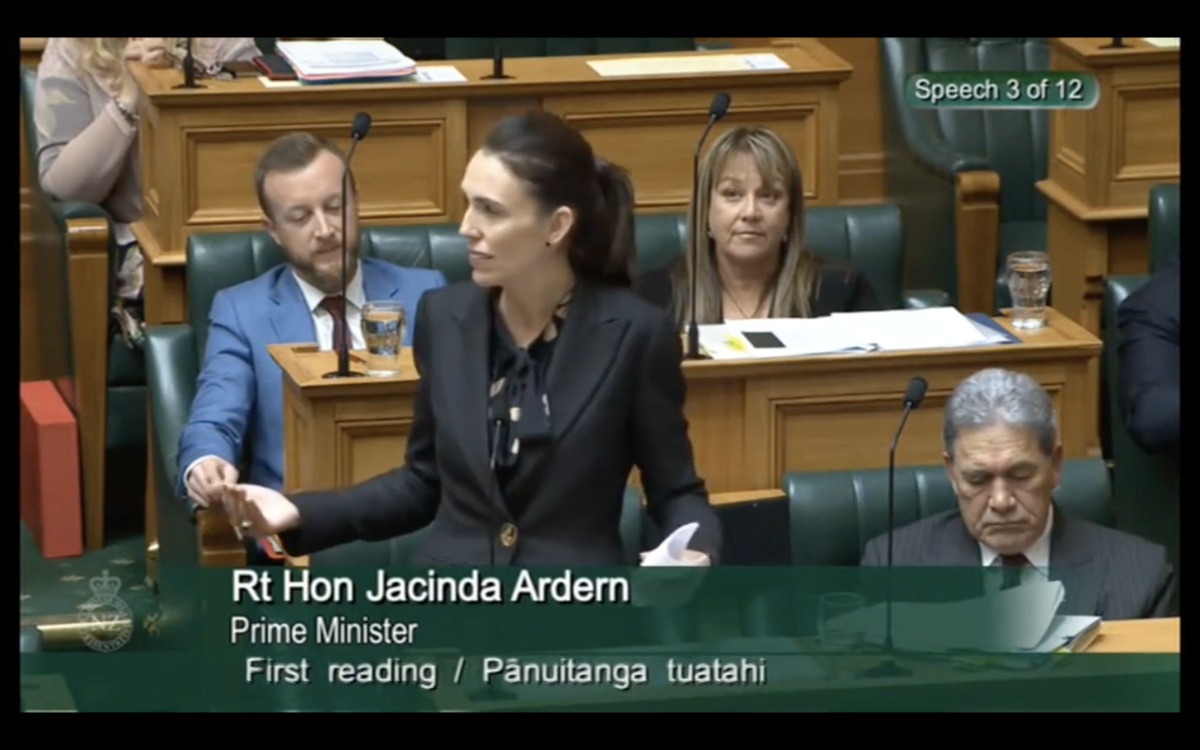After losing to England in the semi-final of the Rugby World Cup, New Zealand’s back-up plan for receiving unmitigated world-praise kicked into effect last week as its parliament passed a bill into law which will see the land of the long white cloud cut its carbon emissions to net-zero by 2050.
New Zealand’s Prime Minister Jacinda Ardern, whose government led the charge, told parliament she was proud of the decision made. “I hope it means the next generation will see that we…were on the right side of history.”
The Zero Carbon Bill, which enshrines in law the 2050 greenhouse gas reduction targets, was further described by Ardern as this generation’s “nuclear moment,” a reference to The New Zealand Nuclear Free Zone, Disarmament, and Arms Control Act of 1987 which saw all nuclear-powered or nuclear-armed ships banned from entering New Zealand’s ports or waters.
“We have to start working beyond targets,” said Ardern, “we have to start working beyond aspiration. We have to start moving beyond signs of hope and deliver signs of action. That is what this government is doing and proudly so.”
The Coalition Government made up of Ardern’s Labour, the Green party and NZ First, didn’t need the opposition National party in order to pass the bill but Greens leader and current Climate Change Minister James Shaw sought bi-partisan support for the bill in order to ensure its longevity.
“Some things are too big for politics,” said Shaw, “And the biggest of all is the climate crisis. Everyone has had to give way, even a little. But this is bigger than all of us.”
The bill is wide-ranging, but inclusive of its features is the establishment of an independent Climate Change Commission, a requirement that the government set new emission budgets every five years, and an overall goal of New Zealand to do its part in the limiting of global temperature rise.
Its part is reaching net zero emissions by 2050, however that is not inclusive of methane emissions, for which the bill only holds New Zealand to a 2050 target of between 24-47%. This is a rather telling exception to make considering agriculture is a top industry. Thus the actual effect the Bill will have on global temperature rise, and indeed New Zealand’s own top industry, is negligible, especially considering most of the net-zero target acquirement will be done through the purchase of credits rather than the eradication of carbon emissions.
Nevertheless, Ardern has not been shy of Climate Change. At the Climate Change Summit at the United Nations in September Ardern led four other small nations in negotiations for a trade agreement to remove tariffs on environmental goods, such as solar PV, and eliminate fossil fuel subsidies.
Considering New Zealand is the land of the long white cloud it is not surprising that solar PV is not a big part of the country’s energy mix. Indeed, it accounts for less than 1% of the nation’s energy mix, a mix largely of renewables. However, almost half of the solar PV installed in New Zealand has been installed in the last two years alone. As the country continues in its energy transition, boosted enormously by strong policy at the federal level such as the Zero Carbon Bill, cheap solar is among the contenders to boom in coming years. In a report released earlier this year, Transpower identified 11 GW of potential residential solar PV.
This content is protected by copyright and may not be reused. If you want to cooperate with us and would like to reuse some of our content, please contact: editors@pv-magazine.com.









By submitting this form you agree to pv magazine using your data for the purposes of publishing your comment.
Your personal data will only be disclosed or otherwise transmitted to third parties for the purposes of spam filtering or if this is necessary for technical maintenance of the website. Any other transfer to third parties will not take place unless this is justified on the basis of applicable data protection regulations or if pv magazine is legally obliged to do so.
You may revoke this consent at any time with effect for the future, in which case your personal data will be deleted immediately. Otherwise, your data will be deleted if pv magazine has processed your request or the purpose of data storage is fulfilled.
Further information on data privacy can be found in our Data Protection Policy.